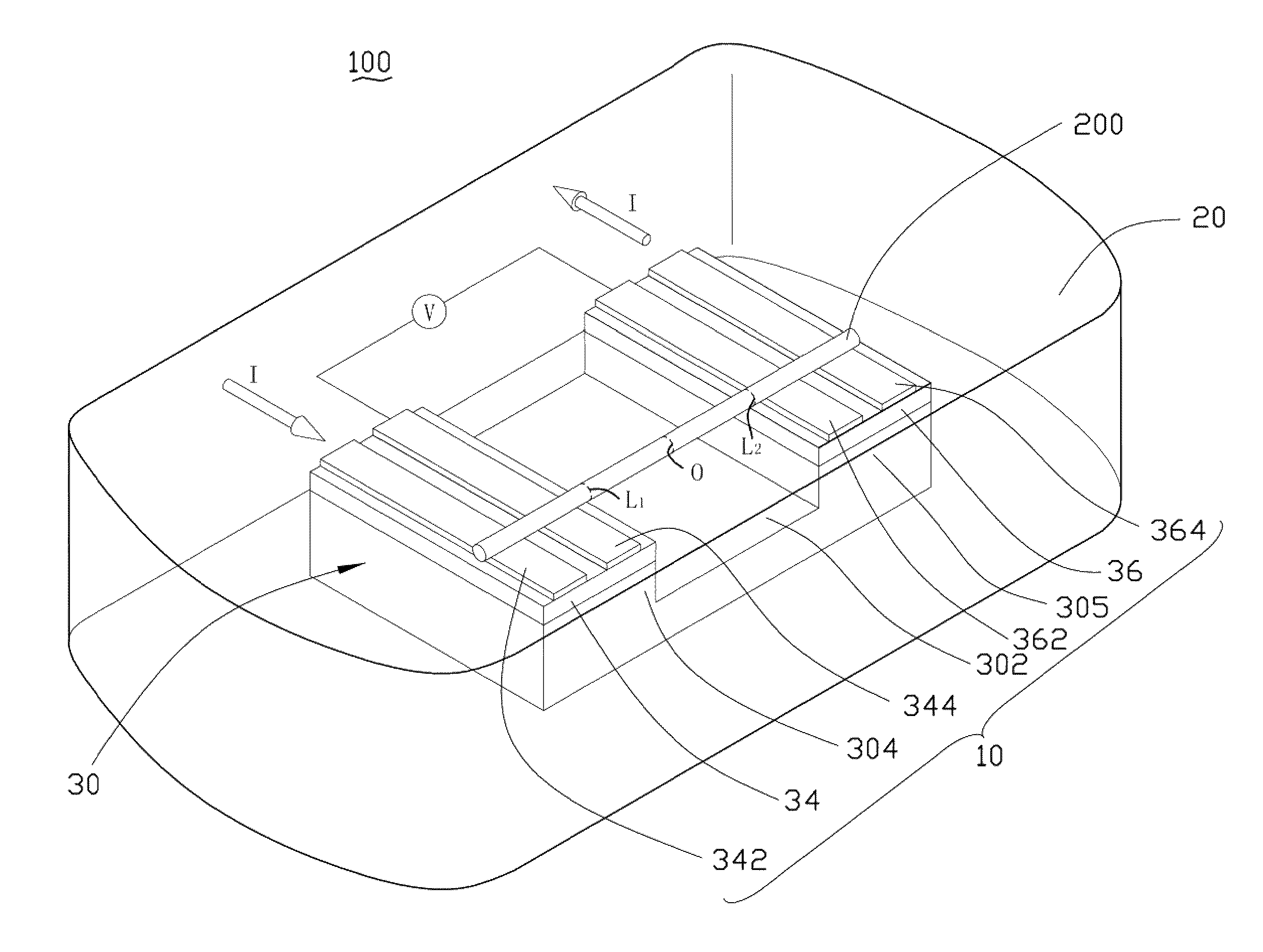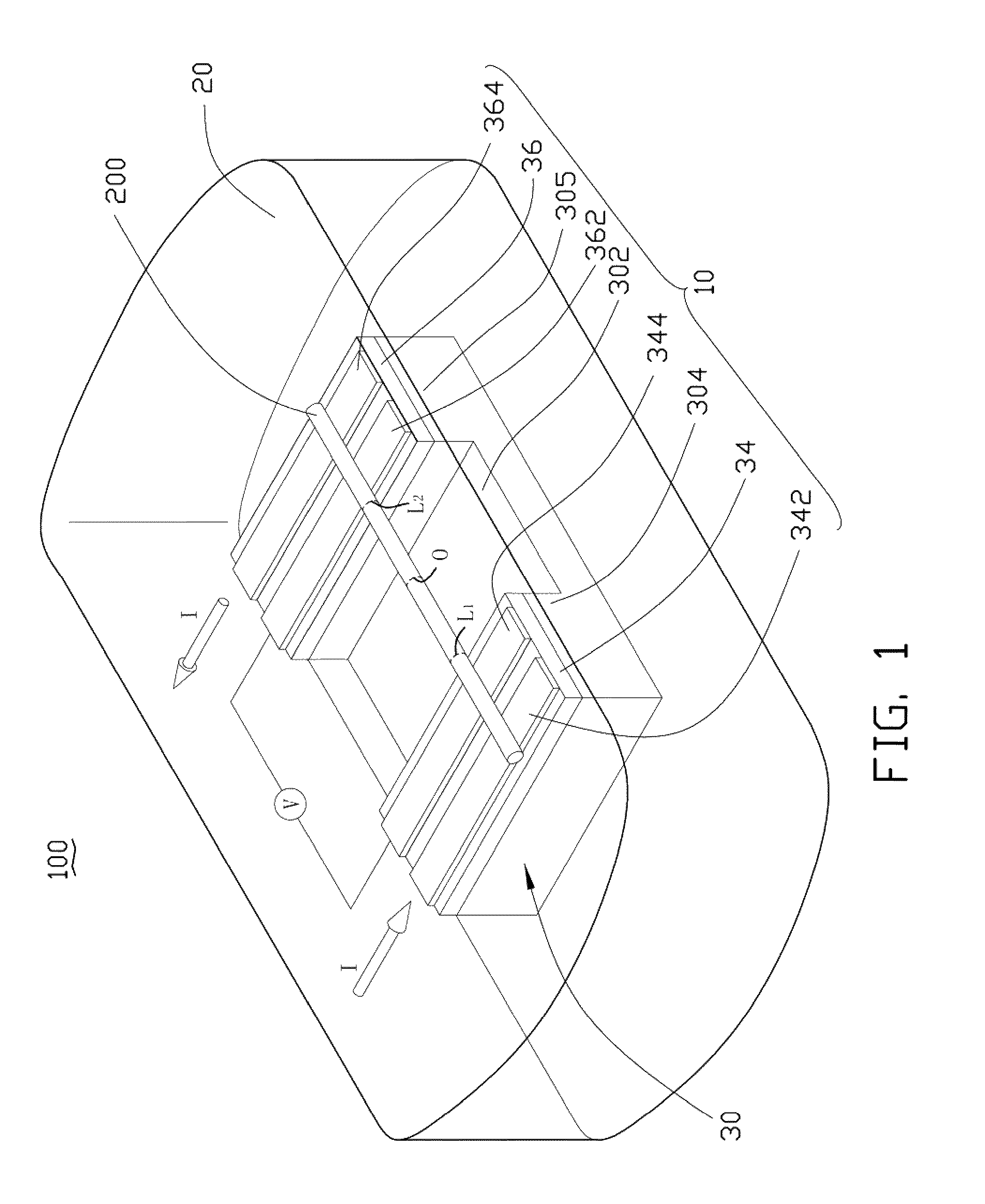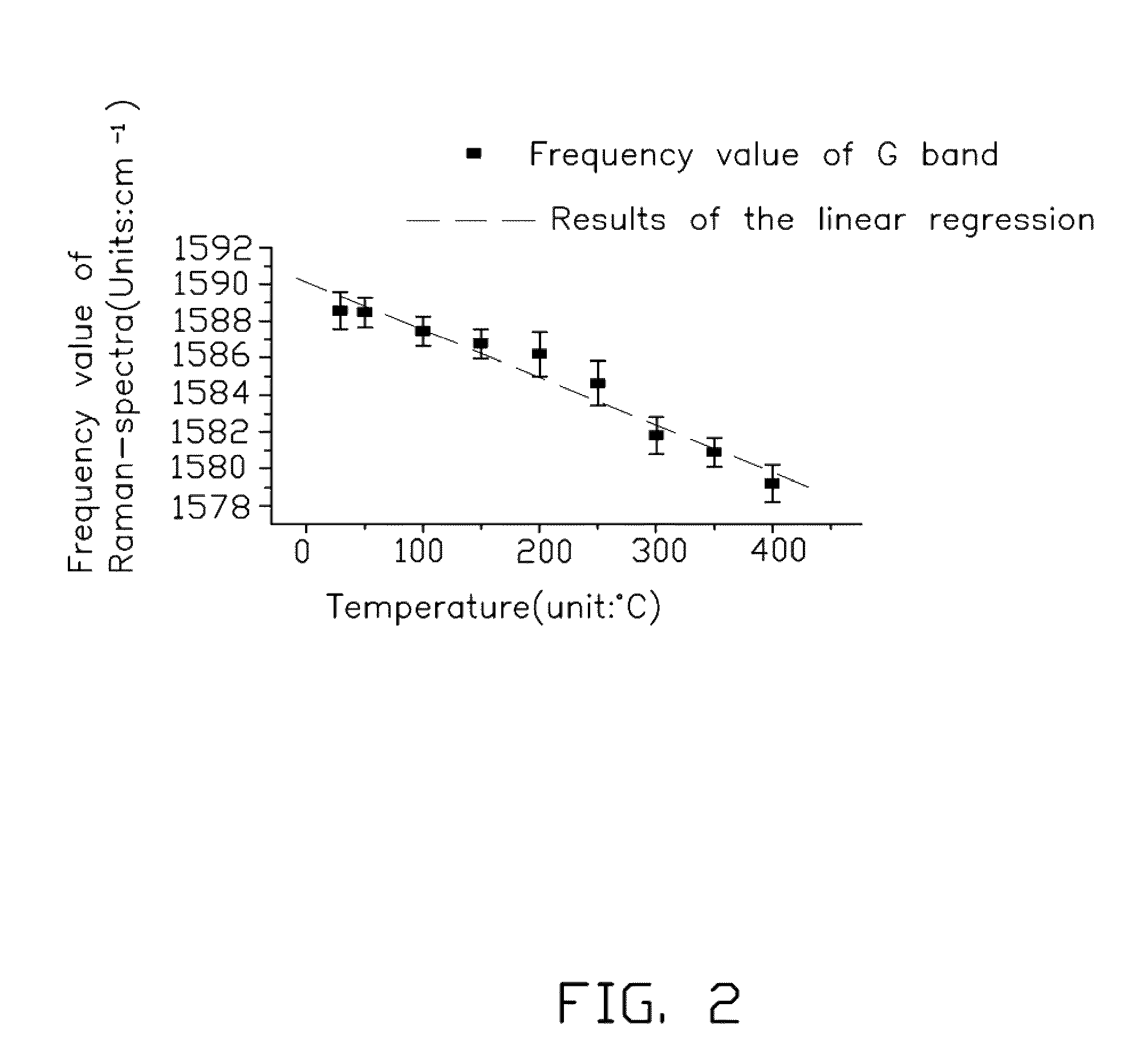Method for measuring thermal conductivity of one-dimensional material
a one-dimensional material and measurement method technology, applied in the direction of optical radiation measurement, instruments, spectrometry/spectrophotometry/monochromators, etc., can solve the problem of more difficult measurement of thermal conductivity
- Summary
- Abstract
- Description
- Claims
- Application Information
AI Technical Summary
Benefits of technology
Problems solved by technology
Method used
Image
Examples
Embodiment Construction
[0011]The disclosure is illustrated by way of example and not by way of limitation in the figures of the accompanying drawings in which like references indicate similar elements. It should be noted that references to “an” or “one” embodiment in this disclosure are not necessarily to the same embodiment, and such references mean at least one.
[0012]Referring to FIG. 1, an embodiment of a thermal conductivity measurement apparatus 100 is shown. The thermal conductivity measurement apparatus 100 is used to measure a thermal conductivity ω of an object 200. In one embodiment, the object 200 is a one-dimensional material whose characteristic band frequency value of Raman-spectra varies linearly with its temperature. The one-dimensional material can be a one-dimensional nanometer sized material or one-dimensional micrometer sized material. The one-dimensional nanometer material can comprise nanotubes, nanorods, nanowires, nanofibers, nanotips, nanopillars, nanoribbons, and so on.
[0013]The ...
PUM
| Property | Measurement | Unit |
|---|---|---|
| wavelength | aaaaa | aaaaa |
| outer radius | aaaaa | aaaaa |
| thickness | aaaaa | aaaaa |
Abstract
Description
Claims
Application Information
 Login to View More
Login to View More - R&D
- Intellectual Property
- Life Sciences
- Materials
- Tech Scout
- Unparalleled Data Quality
- Higher Quality Content
- 60% Fewer Hallucinations
Browse by: Latest US Patents, China's latest patents, Technical Efficacy Thesaurus, Application Domain, Technology Topic, Popular Technical Reports.
© 2025 PatSnap. All rights reserved.Legal|Privacy policy|Modern Slavery Act Transparency Statement|Sitemap|About US| Contact US: help@patsnap.com



